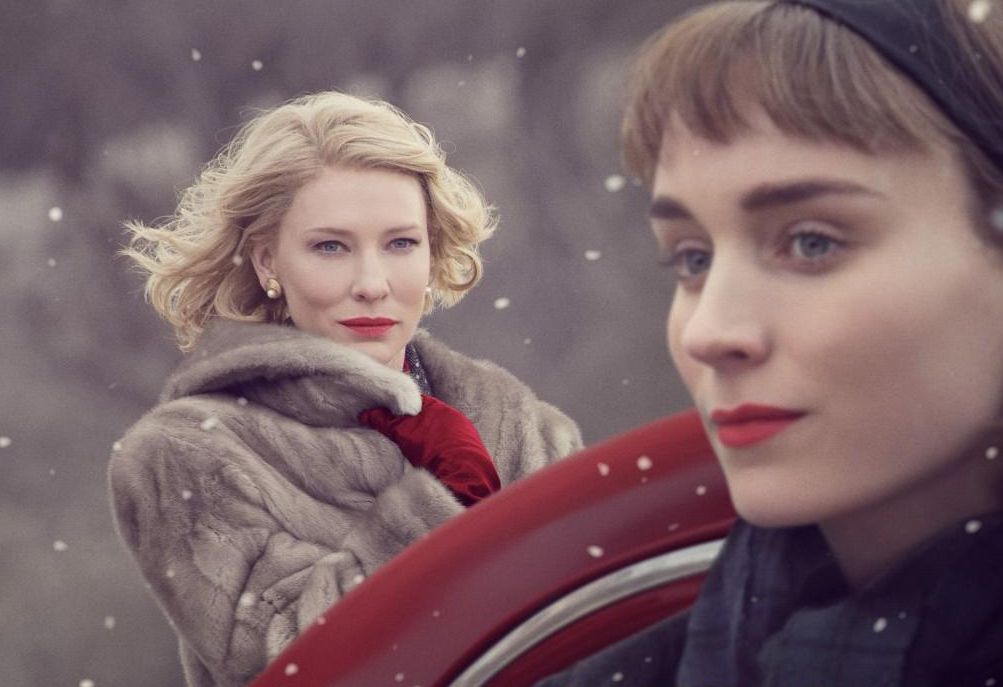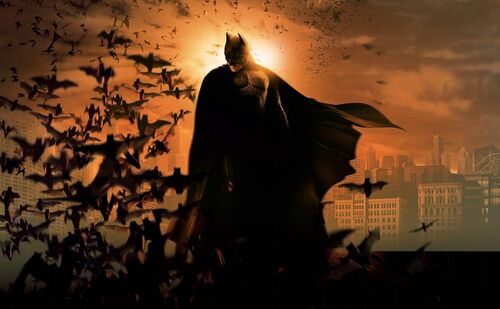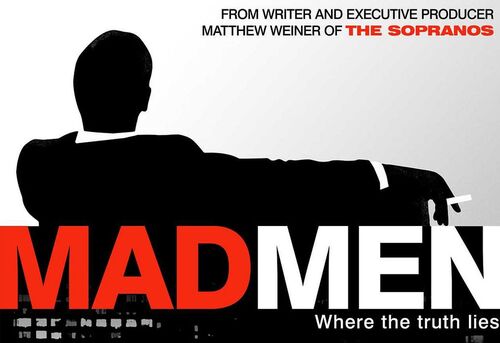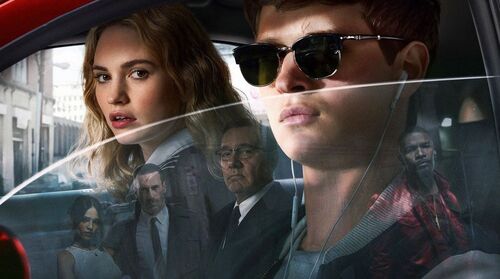
Carol (2015) Film Review
 Therese Belivet loved trains very much as a child, and it influenced a life of going in circles, which is in many ways what this film does. It takes us on a journey, a compelling one, but returns us to where we began. At the end, we only feel a little more transformed than when the film began.
Therese Belivet loved trains very much as a child, and it influenced a life of going in circles, which is in many ways what this film does. It takes us on a journey, a compelling one, but returns us to where we began. At the end, we only feel a little more transformed than when the film began.
In Carol, its title character is not its central one, appropriately, though her situation directly affects the entire narrative to a fault. Instead of an exploration of forbidden love, it at times feels like a run-of-the-mill custody battle, a conflict that isn't nearly enough to do justice to every other part of the film.
Therese (Rooney Mara) is young, innocent, impressionable, "flung from space." Carol Aird is drawn to her, untainted, unburdened, as she herself experiences the rigors of divorce and a battle for her daughter. Cate Blanchett is enchanting, mesmerizing as a woman who is at first mysterious before becoming a woman of great vulnerability.
That Therese's strength is mistaken for naivety for much of the film is purposefully done. We meet her almost exactly at the same time as Carol does, wearing a Santa hat that makes her seem even younger. What Carol doesn't see is that she wears it not by choice. It's also what we forget. That initial meeting, set in the toy shop where Therese works, is a visual highlight in a film that is shot with careful precision. The period is captured supremely, transporting us to a time many of us aren't familiar with, which is so inviting. It's realism with at twist, only fake as far as it evades our (or at least, my) living memory.
Though the look and feel of the time period is nailed down, less can be said for its representation of the extent to which people like Carol and Therese had to fight as a minority. The details are glossed over, such as Carol's psychiatric treatment, and what little is said feels like it only exists in the film to be said. Obviously, an audience can recognise the state of society at the time, but it can be argued that the film's responsibility is to build its world in the opening act, ensuring that nothing is missed. Carol fails to do so, and the enclosed feeling of its minimal cast shuts off what the rest of the world might feel and react to the couple.
As such, where the walls might otherwise have felt as though they were closing in under anyone else's pen, the script here fails to raise the stakes enough for them to ever feel crucial. Oh, they are crucial for sure, but there's a lot to be said for the absence of Carol's daughter, and indeed for the two lead characters choosing to disappear for much of the film. Fortunately, vanishing from the world both had settled into is never a failure, and the road trip allows for the relationship to blossom slowly and naturally.
The men are imposing, but only half-so. If the pointless and random inclusion of Carol's pistol had been replaced by a stronger male presence, then the tension may have propelled the entire conflict. While Carol's husband Harge (Kyle Chandler) toes the line, he never crosses it. It feels like the script never wanted a nonredeemable antagonist on screen. Though, culminating in Blanchett's incredible line delivery toward the end of the film, this may be justified. What the script does successfully implement is the ego-driven men and their feelings of 'rightful ownership' over their women, a responsibility for them. Their love for them isn't questionable, but their hand on their back sure is.
Rooney Mara is nuanced, giving so much with so little. Her performance is one of the highlights of the two hours. She is never weak but always curious, willing to fall into any new experience if only because she does not know how to say no. Like the train, her habits are cyclic, and by the end of it we're left with the illusion that she has learned her lesson, but tragically it seems that she hasn't (or maybe it isn't tragic). The chemistry she and Blanchett share is electric, so much so that we feel as though we're intruding on something deeply private, that we shouldn't be allowed in on. The cinematography though allows us a peak into everything, just enough. One shot has us peering around a doorway, for one of the first times, into the life of Carol as she brushes her daughter's hair.
Often, the camera will show little of its characters, using backgrounds, setting, lines to tell its story. But for all of its technical prowess, its spectacularly captured period setting, its stirring character performance, the film can be described as admirable, but not quite moving. Right from the first shot, crossing the road and seeing those cars we now call vintage, and before that hearing the symbolic and unmistakable sound of the train in the background, we know Carol will be, and ultimately proves to be, visually rich.
In the end, perhaps that's not enough. A great film can be many things. It can emotionally resonate. It can transport us into a world so unique we fall in love in an instant. Often, that great film will be both. And it's always much more than that. Carol is not a great film. It is a courageous one without truly being courageous. It is pure filmmaking, beautifully rendered, but written with a hesitance. In many ways the film is that train riding the tracks. It stops at the places you'd like it to go, but it's always in a hurry to return home, to somewhere it's most comfortable. Unfortunately, its comfort zone is its least compelling one.


